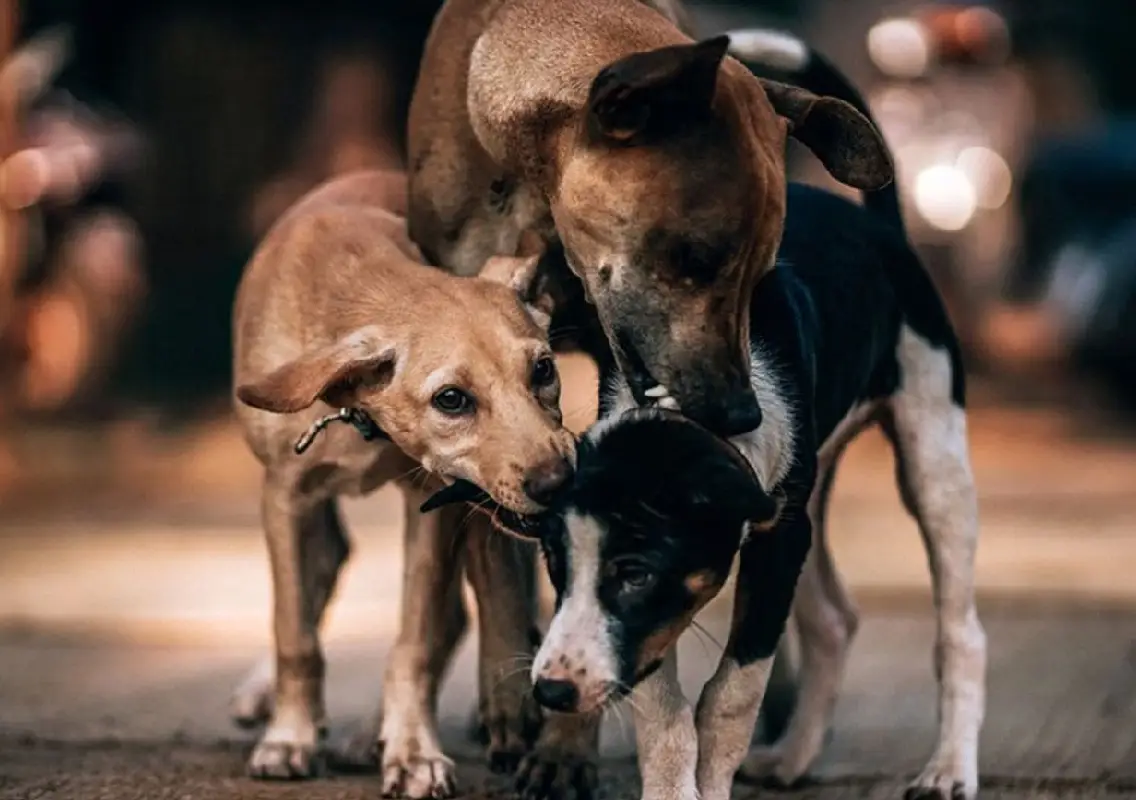By News Karnataka Editorial Team
Copyright newskarnataka

Bengaluru: A much-publicised scheme to provide daily meals to stray dogs across the city has been put on hold following the administrative transition from the Bruhat Bengaluru Mahanagara Palike (BBMP) to the newly formed Greater Bengaluru Authority (GBA). The ambitious initiative, which aimed to feed nearly 4,000 stray dogs with nutritious meals, is now awaiting a decision from the new civic set-up.
Scheme caught in transition
The BBMP had earlier approved a project to provide one cooked meal of chicken rice every morning to stray dogs at 100 designated feeding points in Bengaluru. The plan was expected to cost ₹2.88 crore annually and was lauded as a first-of-its-kind effort to address both animal welfare and public safety concerns.
However, with the dissolution of BBMP and its replacement by the GBA, the file was transferred to Chief Commissioner M Maheshwar Rao. Officials have clarified that the decision now lies with the five newly created corporations under the GBA framework.
Details of the initiative
According to the civic body’s tender, each meal was designed to include 600 grams of cooked rice mixed with chicken, vegetables, and turmeric, providing at least 750 kcal per dog, along with access to clean drinking water.
The 4,000 identified dogs were to be fed in areas facing food scarcity or lacking regular feeders. A senior official said locations had already been mapped, and tenders were ready to be floated before the restructuring halted the process.
Public and social media response
The announcement of the scheme earlier this year had generated wide attention. Animal lovers praised the move as a humane step, while others highlighted its potential to reduce dog bites by curbing aggression in hungry stray dogs. Social media users, meanwhile, responded with a mix of appreciation and humour, with memes around “BBMP’s chicken rice plan” trending locally.
Wider implications
Officials noted that the feeding programme was not only about compassion for animals but also intended as a preventive measure to enhance public safety. Hungry stray dogs are often more aggressive, leading to higher bite cases in urban neighbourhoods. By ensuring regular feeding, civic authorities hoped to minimise such risks while also improving the health of street dogs.
What lies ahead
With the project now stalled, activists and citizens are urging the GBA to revive the plan at the earliest. “It is a welfare and safety measure, not a luxury. Thousands of dogs and communities will benefit,” said one city-based animal rights activist.
The GBA is yet to take a final call on whether the programme will be implemented by the new corporations or redesigned under its own framework.



